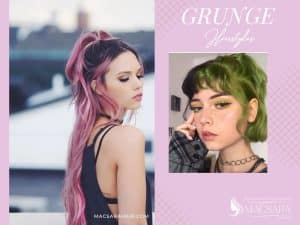
Menu
A dry scalp can cause you a bad hair day as you may feel unbearably itchy and notice a lot of dandruff. However, there are many ways to relieve it, from changing your shampoo to using natural ingredients. Read on to learn about treatments for dry scalp you can try at home today so you can get your healthy scalp back!
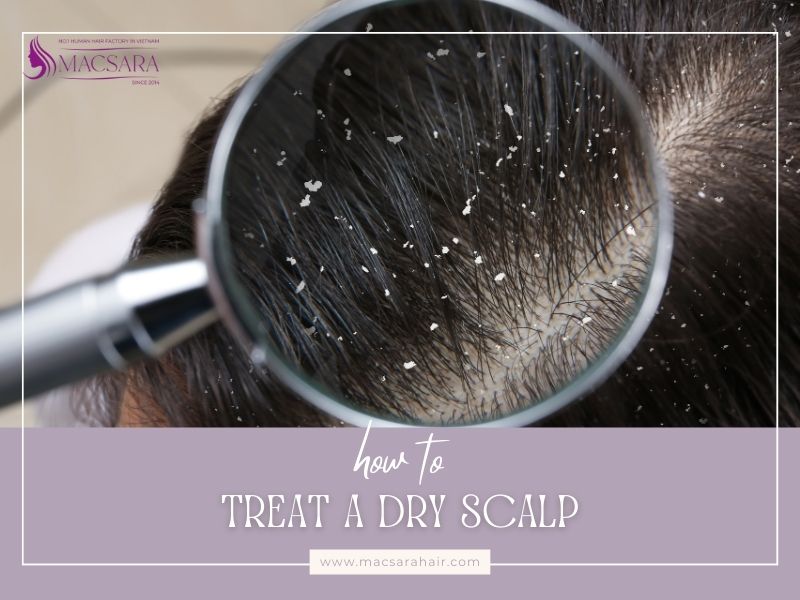
Before diving into dry scalp treatments, it’s essential to understand its causes. You experience a dry scalp when it lacks too much moisture and can cause itching and flaking. There are many reasons for this, including:
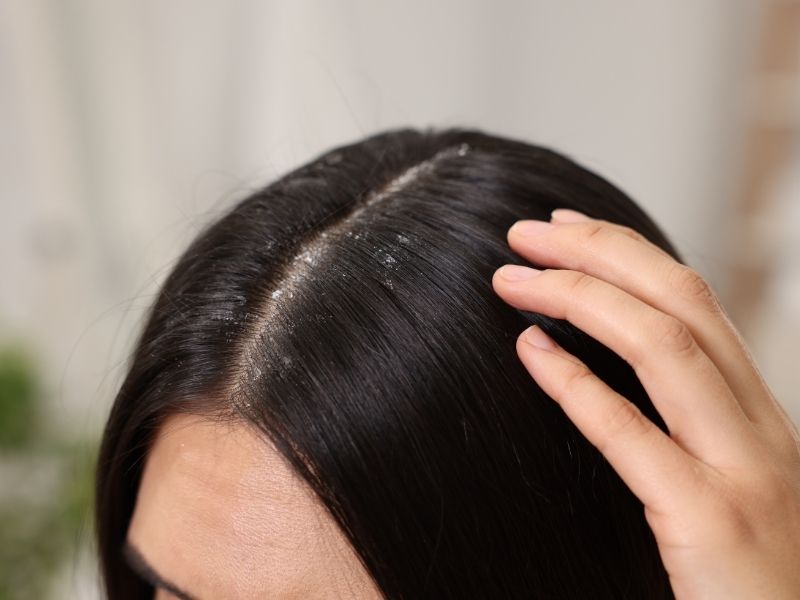
If your dry scalp is caused by a skin condition, switching to a medicated shampoo might be one of the best treatments for dry scalp. Consult your doctor to find the best product for your specific condition. A common choice is an antifungal dandruff shampoo, which contains ingredients like zinc pyrithione, ketoconazole, and selenium sulfide. These shampoos help treat and prevent scalp dandruff, according to Jules Lipoff, M.D., assistant professor of clinical dermatology and board-certified dermatologist at the University of Pennsylvania. For some, a salicylic acid shampoo may be needed to dissolve flakes and relieve itching.
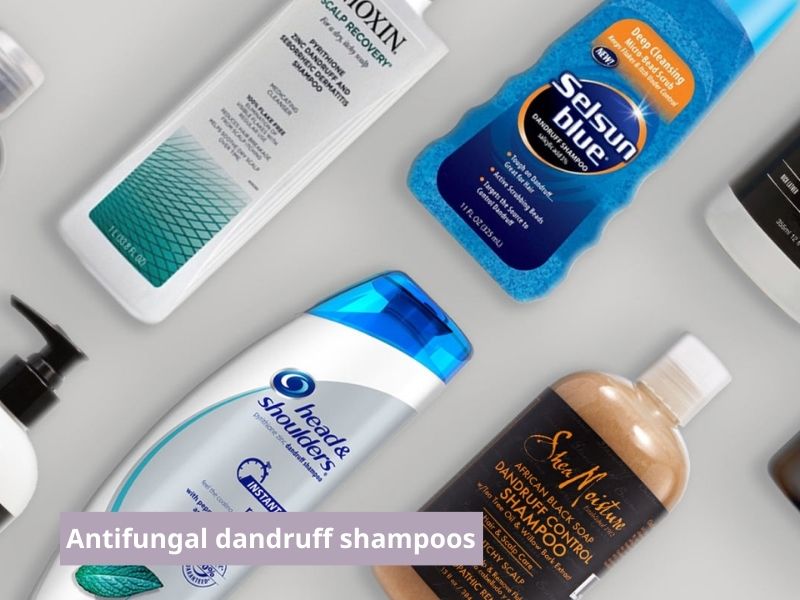
If your dry scalp is due to using harsh shampoos or other hair care products, it’s time to switch to gentler options. Look for products that contain natural, nourishing ingredients and are free of common irritants such as fragrances and dyes.
Adjusting your hair-washing routine is one of the easiest treatments for dry scalp:
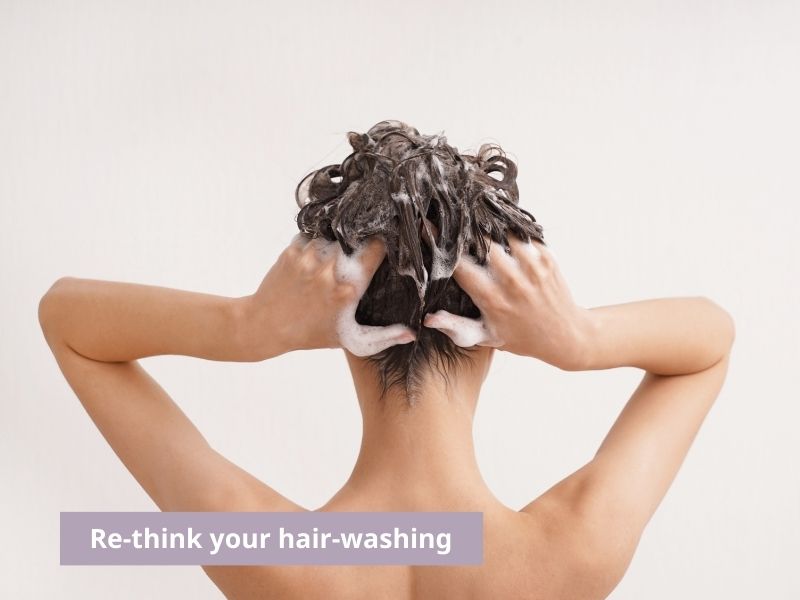
When it comes to dry scalp treatment at home, you cannot overlook natural oils as they help reduce water loss and increase skin hydration. Dr. Shirazi recommends applying 3-5 drops of oil to your fingertips and massaging it into your scalp after a shower, then rinsing it off the next day.
Below are some types of natural oils that are easy to find in any grocery store aisle and do the trick:
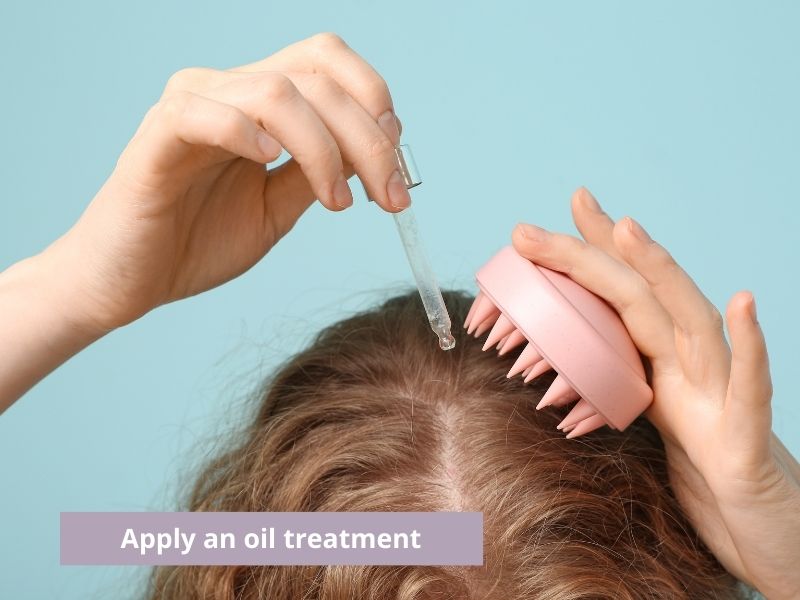
Incorporating a hydrating serum into your hair care routine can provide an extra layer of moisture to your scalp, helping to combat dryness. Look for serums that contain ingredients like hyaluronic acid, aloe vera, and glycerin, which attract and retain moisture. Apply the serum directly to your scalp after washing your hair and gently massage it in. This not only boosts hydration but also improves blood circulation to the scalp, promoting overall scalp health.
Apple cider vinegar (ACV) has numerous applications in hair care, including treatments for dry scalp. Its antibacterial properties help eliminate bacteria or fungi that cause itchiness. Mix half a cup of water with half a cup of ACV, massage it onto your scalp, and leave it in for about 15 minutes before rinsing it out.
Something that sounds as simple as drinking enough water can make a big difference. However, for one reason or another, a lot of people don’t stay hydrated until they realize its impacts on their health, including scalp health. So make sure to drink six to eight glasses daily for the sake of your scalp!

Sun exposure can dry out your scalp, leading to irritation and flaking. To protect your hair and scalp, take the following precautions:

Yes, a dry scalp can contribute to hair loss. When the scalp is dry and itchy, frequent scratching can damage hair follicles, weakening them and leading to hair loss. Additionally, conditions causing dry scalp, such as seborrheic dermatitis or psoriasis, can also negatively impact hair health. Addressing the underlying causes of a dry scalp and maintaining proper scalp care is crucial for preventing hair loss and promoting healthy hair growth.
If the treatments for dry scalp above don’t help relieve the symptoms within 2-4 weeks, you’d better visit a dermatologist or trichologist, who focuses on hair and scalp problems and can collaborate with a doctor to assess your symptoms and create the best dry scalp treatment for you. While this is usually necessary only in severe cases, it’s important not to ignore persistent itching, as it might indicate other health issues.
Conclusion
In conclusion, addressing dry scalp effectively requires a combination of targeted treatments and proper scalp care. Try those treatments for dry scalp today to alleviate dryness and visit a doctor if needed so you can say good bye to your dry scalp as soon as possible.
If you are looking for high-quality human hair extensions in various textures, colors, and lengths, Macsara Hair – a leading Vietnamese hair factory, is where you can place your trust. Our hair extensions are made from 100% human hair, ensuring a natural look and feel as well as a long lifespan. You can dye and style them as you want and experiment with endless hairstyles!
We are also looking to partner with wholesale hair vendors and salons all over the world, offering you various beneficial policies. For more information and the best deals, don’t hesitate to leave a comment below or contact us at WhatsApp +84 98 6980 492 for 24/7 support!

Mr. Jack Nguyen - The CEO and founder with a broad and visionary perspective of Macsara Hair - a company with a leading human hair factory in Vietnam.
Grab our promotions first
Copyright 2023 © Macsara Hair
